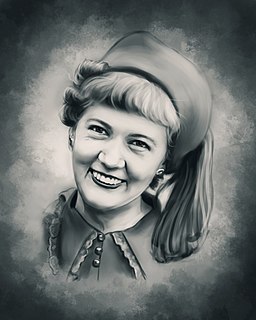A Quote by E. M. Forster
Axiom : Novel must have either one living character or a perfect pattern: fails otherwise.
Related Quotes
What must novel dialogue . . . really be and do? It must be pointed, intentional, relevant. It must crystallize situation. It must express character. It must advance plot. During dialogue, the characters confront one another. The confrontation is in itself an occasion. Each one of these occasions, throughout the novel, is unique.
There is, in fact, not much point in writing a novel unless you can show the possibility of moral transformation, or an increase in wisdom, operating in your chief character or characters. Even trashy bestsellers show people changing. When a fictional work fails to show change, when it merely indicates that human character is set, stony, unregenerable, then you are out of field of the novel and into that of the fable or the allegory. - from the introduction of the 1986 Norton edition
Praying that does not result in right thinking and right living is a farce. We have missed the whole office of prayer if it fails to purge our character and correct conduct. We have failed entirely to understand the virtue of prayer, if it does not bring about the revolutionizing of life. In the very nature of tings, we must either quit praying or quit our bad conduct.
I believe that all novels, ... deal with character, and that it is to express character – not to preach doctrines, sing songs, or celebrate the glories of the British Empire, that the form of the novel, so clumsy, verbose, and undramatic, so rich, elastic, and alive, has been evolved ... The great novelists have brought us to see whatever they wish us to see through some character. Otherwise they would not be novelists, but poet, historians, or pamphleteers.
There is a glorious pattern for every man's life, an individual, perfect patter. No two people are alike ... No two leaves are alike-no two snowstorms-no two sets of fingerprints. No two lives are alike, yet each life holds a divine pattern of unfoldment, a great and holy destiny, rich in achievement and honor. As you live true to the pattern of yourself, that deep, inner self, you will unfold as perfect, as joyous, as naturally beautiful as the tree will reach its full measure of fulfillment.
A detective novel should contain no long descriptive passages, no literary dallying with side-issues, no subtly worked-out character analyses, no 'atmospheric' preoccupations. Such matters have no vital place in a record of crime and deduction. They hold up the action and introduce issues irrelevant to the main purpose, which is to state a problem, analyze it, and bring it to a successful conclusion. To be sure, there must be a sufficient descriptiveness and character delineation to give the novel verisimilitude.
The two basic maxims of the so-called historical criticism are the postulate of the common and the axiom of the ordinary. Postulate of the common: everything really great, good, and beautiful, is improbable, since it is extraordinary and therefore at least suspect. Axiom of the ordinary: our conditions and environment must have existed everywhere, for they are really so natural.






































